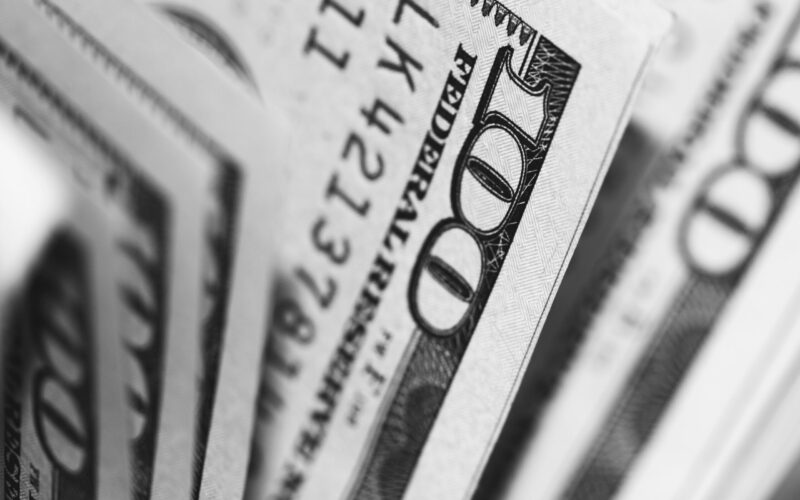Even if you already paid for car insurance coverage, you can cancel your auto insurance anytime, and you may be able to receive a refund for any pre-paid, unused premiums. Depending on the insurance company, policyholders can cancel their current policy through an insurance agent or the insurer’s mobile app or website.
Will I get a refund if I cancel my auto insurance?
When you cancel your policy, you may receive a car insurance refund if you paid your premium in advance, moved to a new state with lower rates, found a better rate with another company, or otherwise canceled a policy that you paid for but didn’t use.
However, some insurance companies charge an early cancellation fee, which could reduce your refund. This will depend on the state you live in and how long you’ve held your insurance policy prior to cancellation, so check with your provider for more information on their car insurance cancellation policy to get a better idea of your anticipated refund.
- You might get a refund if:
- You paid your premium in advance and cancel your policy before the end of the term
- You find a better rate with another company and switch policies
- You move to another state and your new policy has lower rates
- You remove coverage from your policy
- You reduce your coverage limits
- You sell your car and remove it from your policy
- You remove a driver from your policy and lower your auto insurance rate
- Your insurer cancels your policy if you’re deemed a high-risk driver
- You might not get a refund if:
- You cancel your policy close to the renewal date
- Your insurer cancels your policy if you stop making your payments
How will your car insurance refund be paid?
If your insurance company approves your refund, you’ll generally receive it in the same way you made your initial payment.
That means if you paid by:
- Credit card: You’ll receive the refund amount as a credit on the same card.
- Electronic transfer: You’ll get a direct deposit to your bank account for the refund amount.
- Check: You’ll receive a refund check by mail.
An exception: If you’re getting a refund because you made changes to your current insurance policy that caused your premium to be less than what you already paid, you’ll likely receive a credit against your next premium payment rather than a refund check.
Learn more: How to cancel your insurance when selling your car
Car insurance refunds: prorated refunds vs. short-rate cancellation fees
There are two primary types of cancellation refunds: prorate and short-rate cancellations.
While most insurance companies don’t charge cancellation fees, some do have “short-rate” policies. This means they’ll deduct administrative expenses from your refund before issuing it, reducing the amount you get back.
On the other hand, companies that prorate their refunds will pay customers the full unused portion of their insurance premium. For example, if you paid $2,400 for a 12-month policy upfront, but canceled six months into the policy—a prorated refund would give you a $1,200 refund since you only used half of the coverage.
The bottom line:Before purchasing your auto policy, it’s always a good idea to read your car insurance company’s fine print (along with state laws) to determine the type of car insurance refund you’ll receive.
How to cancel your auto insurance policy
If you cancel your current insurance policy, most auto insurance companies will refund the unused portion of your premium. For example, if you paid a 12-month policy upfront and you cancel it after seven months, you’ll usually receive a refund for the five months you didn’t use. However, you’ll need to contact your insurance agent to start the cancellation process and set a cancellation date.
Thankfully, canceling a car insurance policy is relatively straightforward. Follow these steps to make the cancelation process go as smoothly as possible:
- Buy new insurance first: If you plan to continue driving, purchase a new car insurance policy before canceling your old one to avoid a lapse in coverage.
- Contact your insurance company: Depending on your insurer’s options, you can cancel by phone, mail, in person, or through the company’s mobile app or website.
- Cancel your insurance policy: Each insurance provider may have different requirements for canceling a policy. Check with your insurer to learn about cancellation notice requirements.
- Request a cancellation notice: Once you finalize your cancellation date, your former provider will usually send you a confirmation notice that your insurance policy has been canceled.
Once you’ve followed these steps, you should expect to receive the refund within approximately two weeks of your cancellation date. If you’re worried about your refund status, contact your former provider with questions.
When to cancel your auto insurance policy for a refund
There are many reasons why you may want to cancel your car insurance policy, but it’s important to plan ahead of time to avoid a coverage gap.
You may want to cancel your insurance coverage when:
- You move: If you move to another state, you may need to buy a new policy to comply with your new state’s minimum car insurance requirements. Even if you move within the same state, you may find a better deal with another provider as insurers set rates based on where you live.
- You find better rates elsewhere: You may simply be in the market for a more affordable rate. If you’re looking to secure a better deal, you can compare insurance quotes quickly from the nation’s top carriers by downloading Jerry.
- You want to change coverage: If you have an older vehicle, it might be time to drop collision coverage and comprehensive coverage. You might find that another insurance company’s liability coverage may be cheaper.
Keep in mind that you may be able to temporarily suspend your insurance if your car won’t be in use for an extended period (for example, if you’re leaving on military deployment).
What happens if I stop paying my premium without canceling my insurance?
You should contact your insurance provider immediately if you need to cancel your auto policy—don’t just stop making your premium payments.
If you fail to make your car insurance payments, your insurer will eventually cancel your policy due to nonpayment. Not only will it be difficult to find a new policy in the future, but you may also still be responsible for paying your coverage up to the insurer-mandated cancellation. You could also be charged late fees, and if the insurance company reports the non-payment to a credit bureau, it could negatively impact your credit score.
FAQ
- What do I need to do to get a refund from my insurance?
- What is the return premium in car insurance?
- How long does it take to get a refund from Progressive?
- Do I get a refund if I cancel my GEICO policy?

Liz Jenson is an insurance writer who specializes in general automotive and insurance topics. Liz’s mission is to produce informative and useful content to help car owners make smart choices when buying cars and car insurance. Since joining Jerry in 2021, Liz has written nearly 4,000 long- and short-form articles on topics including state-specific insurance recommendations, common car insurance questions, and deep dives into vehicle model details. Before they came to Jerry, Liz was a full-time student at Indiana University, Bloomington working on a double major in English and French.

Expert insurance writer and editor Amy Bobinger specializes in car repair, car maintenance, and car insurance. Amy is passionate about creating content that helps consumers navigate challenges related to car ownership and achieve financial success in areas relating to cars. Amy has over 10 years of writing and editing experience. After several years as a freelance writer, Amy spent four years as an editing fellow at WikiHow, where she co-authored over 600 articles on topics including car maintenance and home ownership. Since joining Jerry’s editorial team in 2022, Amy has edited over 2,500 articles on car insurance, state driving laws, and car repair and maintenance.






